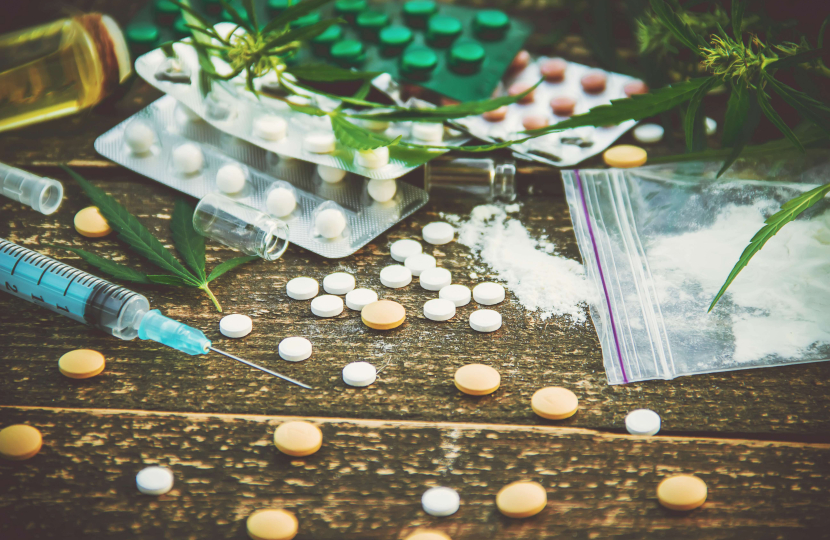
My good friend Noreen Oliver MBE, who died recently, was the founder of the drug charity the BAC O'Connor Centre, helping addicts through rehabilitation to renew their lives. She had dedicated her life to helping those trapped in the grip of addiction. While many working in the sector are focused on prescribing replacement drugs such as methadone, her work reminds us all that escape from addiction altogether is possible and necessary.
That's important because our approach to the growing drug crisis is failing. Annual drug deaths are now nearly double the number of ten years ago, with 5,448 people losing their lives to drug poisoning last year. That's 22 times higher than fatalities from knife crime.
The Office for National statistics reports that one tenth of working age adults used drugs in the past 12 months, some three million people. Addiction continues to blight families and communities. I remember visiting the Easterhouse Estate in Glasgow 20 years ago and hearing the harrowing story of two children suffering at the hands of their drug-ravaged parents.
With no food in their house because the money went on drugs, they ended up queuing for the local church breakfast club. It was one of the reasons I set up the Centre for Social Justice (CSJ), with a view to improving the response of law enforcement and public services to the evil scourge of drugs.
The CSJ's latest report, Still Ambitious For Recovery, is a vital reminder of that call to action. Its recommendations are not about empty promises or quick fixes – they're about changing lives, rebuilding communities, and giving people the tools to overcome addiction. We must learn from the mistakes of countries that have adopted liberalisation policies. The evidence is clear: removing criminal penalties does not curb addiction.
New polling conducted by Opinium for the CSJ reveals that legalising cannabis would lead 24 per cent of 18 to 34-year-olds to try the drug for the first time. What can we do to fight back against the evil scourge of drugs on our streets? First the law needs to be upheld. The CSJ's polling also found that two-thirds of UK police officers believe that cannabis has to all intents and purposes been decriminalised. That needs to change, we have drugs laws and they need to be upheld.
Second, we need to do more to help our kids and divert them from the drugs culture. The CSJ is right to recommend that every secondary school child should have a right to sport.For young people, especially those at risk, a positive outlet can make all the difference.
Third, we need to become far less tolerant of recreational drug use, especially cocaine, among the middle classes. I have been struck by figures showing that cocaine deaths have risen sevenfold in a decade. Snorting a line of white powder at an otherwise respectable party behind closed doors might seem like a victimless crime. It is not.
Users of lifestyle drugs are feeding the mayhem on our streets and the extravagant lifestyles of drugs barons.
We can learn from campaigns in countries such as Sweden where casual users are targeted by the broader consequences of recreational drug use through messaging such as 'I only sponsor gang wars when I'm with friends'.
Addiction is not inevitable, and it's not unbeatable. We must honour champions like Noreen by making recovery the central aim of our drug policy.
Anything less is a disservice to those trapped by addiction, their families, and the communities that deserve better.




